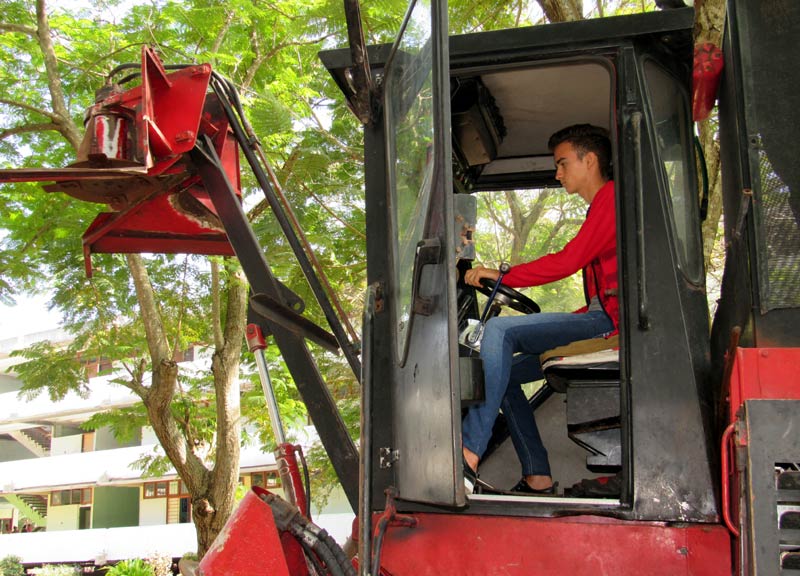Education sector in Holguín strengthens vocational training of students
- Written by Redacción ¡ahora!
- Published in Holguin
- Hits: 1089

Technical and Vocational Education (ETP) in the province of Holguín strengthens the instruction and vocational guidance of students through productive linkages with state entities and new forms of management as a premise for working life.
At this level, which has among its objectives to graduate a qualified workforce with comprehensive knowledge, this task is a priority, since the early connection of students with workplaces allows them to combine the theory and practice of the trade, explained to the ACN Roberto González, director of Higher Secondary Education in the territory.
To achieve this, different programs are implemented such as pre-professional practices, cooperative productions and the productive teaching strategy, where ties are strengthened between schools and organizations with the consequent economic income of both, he commented.
Students participate in this plan during their internship period, when they reach the age of 17, where they produce goods and services with the raw materials provided by the economic actor to which they are linked, obtaining a payment that goes to the state budget, school expenses and the stimulation of teachers and young people involved, he noted.
Currently, ten polytechnics located in seven regions of the province actively participate in this strategy, which have their own bank accounts to manage the profits obtained and are linked to around 13 organizations, including the companies Umbrales, Agrícola de Mayarí and the Comprehensive Construction Company #3 of Moa, he said.
González added that eight contracts have already been signed that allow students to perform activities such as mechanized cane cutting and shooting by the Manuel Isla center, in Cacocum, and gastronomic services associated with tourism by the Manuel Rojo, in Rafael Freyre, which has contributed more than 420 thousand Cuban pesos to the sector.
With respect to cooperative productions, all educational institutions in the province contribute to this initiative, which responds to the particular needs and potential of each of the municipalities in which they are located, he commented.
He specified that although the agreements established with companies within this plan do not involve a monetary payment, they do favor the increase of students' capabilities, encourage responsibility in them, recognize the efforts of teachers and receive resources or inputs for donations destined to the sustainability of the educational process.
The ETP in the northeastern territory is made up of 32 polytechnic institutes and a trade school, which have young people between 15 and 18 years old in around 70 specialties with a scientific-practical basis in the degrees of Middle Technician and Skilled Worker where they constantly the evolution of knowledge is promoted.
